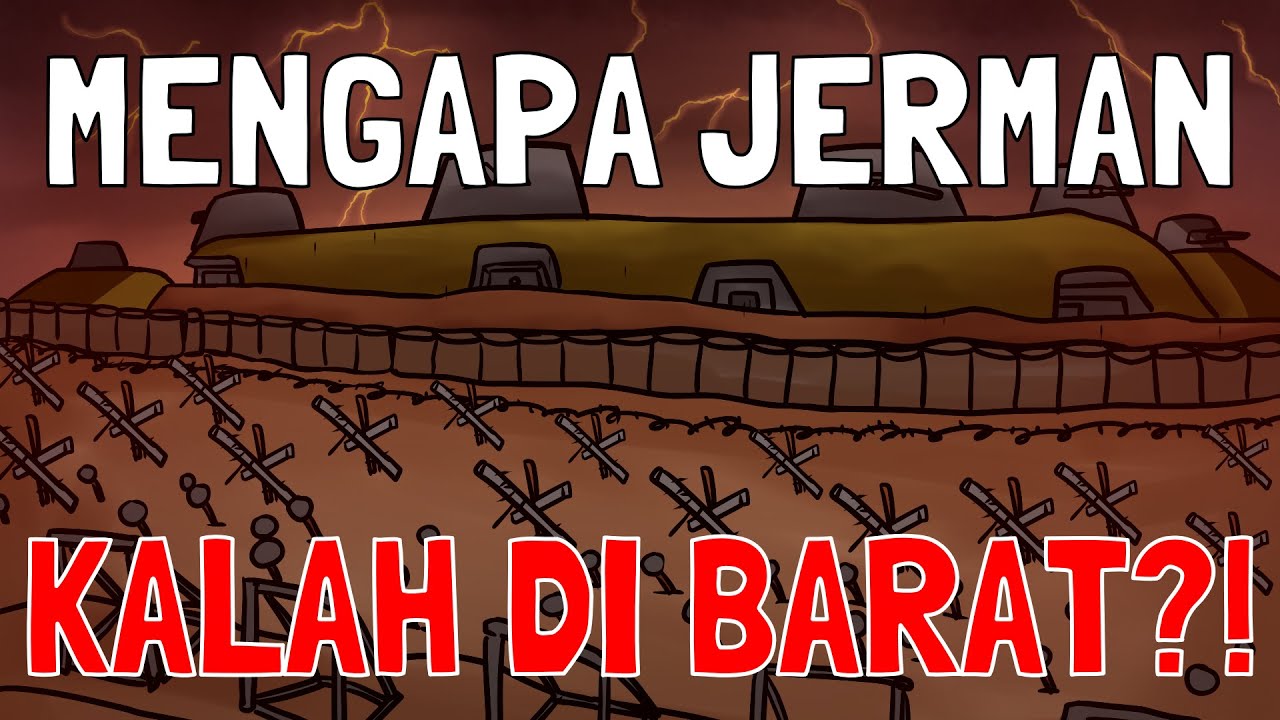Why Hitler invaded the Soviet Union
Summary
TLDRThis video examines Adolf Hitler's Operation Barbarossa, launched in 1941 as an invasion of the Soviet Union. Often viewed as a strategic blunder, the operation was driven by Hitler's belief in the necessity of acquiring Lebensraum and resources for Germany, fueled by a deeply ingrained ideology of racial superiority. The narrative explores how Hitler's plans for conquest and genocide were linked to his ambitions of creating a powerful empire, ultimately leading to unprecedented human suffering. Despite initial military successes, the campaign would culminate in devastating consequences for both the Soviets and the Nazis, shaping the course of World War II.
Takeaways
- 😀 Hitler launched Operation Barbarossa in 1941, aiming to invade the Soviet Union.
- 😀 The invasion was seen as a major strategic blunder, leading to significant consequences for Nazi Germany.
- 😀 Hitler's primary war objective was the conquest of the USSR, which he believed was essential for Germany's survival.
- 😀 Hitler's ideology was driven by the belief in a perpetual struggle between 'superior' and 'inferior' peoples.
- 😀 The concept of Lebensraum ('living space') motivated Germany's expansionist ambitions in Eastern Europe.
- 😀 Germany's economic weaknesses, particularly in agriculture, prompted Hitler to seek resources in the Soviet Union.
- 😀 The Nazi-Soviet Pact allowed for temporary cooperation, but both sides were preparing for future conflict.
- 😀 Hitler's plans included three genocidal programs aimed at exterminating and displacing millions in the East.
- 😀 The 'Final Solution' targeted the extermination of Jews, while the 'Generalplan Ost' sought to remove conquered populations.
- 😀 If fully realized, Nazi genocidal plans could have resulted in tens of millions of deaths among Soviet populations.
Q & A
What was Operation Barbarossa?
-Operation Barbarossa was Adolf Hitler's code name for the invasion of the Soviet Union, launched in the summer of 1941. It aimed to capture key territories and resources in the East.
Why is Operation Barbarossa often described as a strategic blunder?
-It is considered a strategic blunder because, although initially successful, the campaign ultimately failed to achieve its objectives and contributed significantly to Nazi Germany's defeat in World War II.
What were Hitler's main objectives in invading the Soviet Union?
-Hitler's primary objectives included securing *Lebensraum* for German settlers, acquiring vast natural resources, and defeating the perceived threat of communism and Jewish influence.
How did Hitler justify the invasion ideologically?
-Hitler justified the invasion through his belief in a racial struggle, viewing the conquest of the East as necessary for Germany's survival against the 'Jewish world conspiracy' and the 'inferior' Slavic peoples.
What economic challenges did Germany face leading up to the invasion?
-Germany faced significant economic challenges, including a reliance on agriculture, limited resources, and the aftermath of World War I, which hampered its ability to sustain a prolonged military campaign.
What was the Nazi-Soviet Pact, and how did it influence the invasion?
-The Nazi-Soviet Pact was a non-aggression treaty between Germany and the Soviet Union, signed in 1939, which allowed both countries to temporarily exchange resources. It influenced the invasion by providing Germany with time to prepare for a military strike against the Soviets.
What were the three genocidal programs associated with the invasion?
-The three genocidal programs were: the Final Solution for the extermination of Jews, the Generalplan Ost for the displacement and murder of Slavic populations, and the Hunger Plan aimed at exploiting Soviet agricultural resources.
How many people were estimated to be affected by the Generalplan Ost?
-The Generalplan Ost anticipated the removal and likely death of 30-40 million people from the conquered territories.
What role did agricultural resources play in Hitler's plans for the Soviet Union?
-Agricultural resources were critical in Hitler's plans as he aimed to exploit Soviet agriculture to feed the German military and civilian population, thereby alleviating resource shortages in Germany.
What was the significance of Hitler's view on the United States in relation to the invasion?
-Hitler saw the United States as both a model for expansion and a threat due to its association with 'international Jewry.' He believed that Germany should emulate the U.S.'s westward expansion to secure resources in the East.
Outlines

このセクションは有料ユーザー限定です。 アクセスするには、アップグレードをお願いします。
今すぐアップグレードMindmap

このセクションは有料ユーザー限定です。 アクセスするには、アップグレードをお願いします。
今すぐアップグレードKeywords

このセクションは有料ユーザー限定です。 アクセスするには、アップグレードをお願いします。
今すぐアップグレードHighlights

このセクションは有料ユーザー限定です。 アクセスするには、アップグレードをお願いします。
今すぐアップグレードTranscripts

このセクションは有料ユーザー限定です。 アクセスするには、アップグレードをお願いします。
今すぐアップグレード関連動画をさらに表示

100 Jahre - Chronik - 1941 - Das „Unternehmen Barbarossa

The Lebensraum Myth

✅ SECONDA GUERRA MONDIALE riassunto - parte 2 (Stalingrado, Pearl Harbor, Midway, El Alamein...)

Bagaimana Jerman Kalah dalam Pertempuran di Front Barat? - Invasi D-Day (FULL)

SERANGAN BESAR KE RUSSIA - BAHASA INDONESIA - PERANG DUNIA DI TAHUN 1941 .!! #02

PERTEMPURAN STALINGRAD, TITIK BALIK PERANG DUNIA 2 TEATER EROPA, KEKALAHAN PERTAMA NAZI #military
5.0 / 5 (0 votes)
